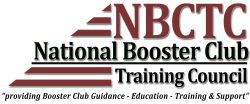General Liability Insurance
$89.00 per year (Lowest Rate Nationwide).
Effective : All School Support Groups must also include the manditory Additional Insured rider for $25, which covers unlimited Additional Insureds.
Commercial General Liability insurance protection with limits of $1,000,000/$2,000,000 Per Occurrence/Annual Aggregate for each participating NBCTC Booster Club.
Did you know that the Booster Club President, and all other officers and directors of the Booster Club can be personally and individually named, in a lawsuit placing their personal assets at risk (home, vehicles, savings, attachment of future wages and earnings of both individual and spouse)?
Protect your personal assets, your Booster Club and your school district from the threat of financial loss and lawsuits. Booster Club insurance programs are specifically created for NBCTC Booster Clubs.

